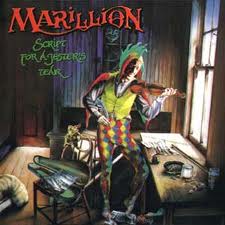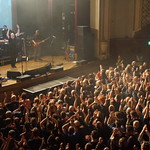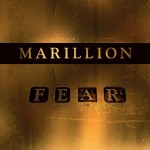 Today is the 30th anniversary of the release of Marillion’s debut album “Script for a Jester’s Tear”.
Today is the 30th anniversary of the release of Marillion’s debut album “Script for a Jester’s Tear”.
I first got in to rock at the end of the 1970s through listening to Nicky Horne and Tommy Vance on late night radio, and the very first album I bought was Pink Floyd’s “The Wall” in 1979. It was a time when the “mainstream” was all punk and new-wave, and I found much of that simplistic and rather unsatisfying.
At the time I got the feeling that I was late to the party and had just missed out on a golden age of music. It seemed as though many the great 70s bands whose back catalogues I was catching up with had either split or had passed their prime. At any rate they were always dismissed as relics of the past, and I kept being told I should be listening to The Clash and The Jam instead. Not that it was really true; around that time Rush were producing what many now consider their finest work, and the New Wave of British Heavy Metal was just gearing up. Rock’s second generation was happening.
Into this came Marillion. I first heard their early sessions on Tommy Vance’s Friday Rock Show, and they sounded quite unlike anything else around at the time. I first saw them live halfway up the bill at the 1982 Reading Festival. I bought the first record, the 12″ single “Market Square Heroes” with “Grendel” on the b-side. A few months later I bought their first album on the day of release. Unlike Pink Floyd, Deep Purple or Genesis, here was a great band that I got in to right at the beginning of their career, and belonged to me in a way the older bands didn’t.
“Script for a Jester’s Tear” remains a remarkable record that I think still stands the test of time, and was certainly a stronger and more forward-looking statement of intent than the early 70s Genesis retread of “Grendel”. Fish’s evocative lyrical style is something you either love or hate, but there’s no denying the power of some of his imagery. The closing anti-war epic “Forgotten Sons” with it’s Psalm 23/Lords Prayer spoken word section lost none of it’s power when he performed it live last year. And right from the beginning it was obvious that Steve Rothery was a quite exceptional guitarist.
I did not imagine back then that the band would still be going strong thirty years later, as is Fish’s solo career, and subsequent generations of musicians would be citing Marillion as a major influence. Both Marillion, now with Steve Hogarth and Fish as a solo artist have reinvented themselves multiple times and today produce music with sounds that has little in common with that very first release thirty years ago. Rock itself hadn’t been going for thirty years back in 1982.
And I certainly could not have imagined the circumstances in which I would first meet Fish in 2007, but that’s another story entirely.



Could have written this myself Tim!
I remember the late 70′s listening to Tommy Vance on friday night without fail, taping and editing afterwards.
I didn’t much like all the new wave and punk stuff the kids at school liked, I preferred ELO! But then a friend lent me ‘We Sold Our Soul For Rock ‘N’ Roll’ by Sabbath and that just blew me away.
The rock show was then a relegion for me and I loved the NWOBHM scene. I also loved the connections as there were great mixtures of prog and metal which I had to follow up.
I remember when Market Square Heroes was first played on the program and I remember how intrigued I was by it. It sounded so fresh and I went out and bought the 12″ the next morning. I still love playing the album and as with Iron Maiden’s first, it’s most definately my favorite just because of the good memories.